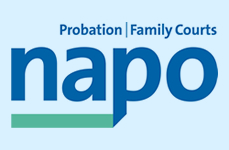On 5th March, Secretary of State for Justice, Robert Buckland, gave the following written statement in the House of Commons.
On 6 December 2019 Joseph McCann was given thirty-three life sentences at the Central Criminal Court for a series of violent sexual attacks which he committed between 21 April and 6 May that same year. His victims, ranging from an 11-year-old boy to a 71-year-old woman, each suffered a terrifying ordeal, and I pay tribute to them for the courage which they showed in giving evidence to secure McCann’s conviction. Mr Justice Edis ordered that McCann serve a minimum of thirty years before being eligible for release on parole.
When he started these attacks, McCann was being supervised on licence by the National Probation Service, having been released automatically from prison on 15 February, after he had served half of a three-year determinate sentence for burglary and robbery offences, less time spent on remand. However, an initial management review and then a full Serious Further Offence (SFO) review confirmed that the Court imposed that sentence on 25 January 2018 on the understanding that it would run concurrent to a recall to prison in connection with an indeterminate sentence of Imprisonment for Public Protection (IPP) which he had received in 2009 for aggravated burglary. However, staff in the National Probation Service (NPS) South East and Eastern Division failed to recall McCann, both when he was remanded into custody on 21 August 2017 and when he received the new sentence on 25 January 2018. Had he been recalled, he would not have been released automatically on 15 February last year; rather, the Parole Board would have conducted a full risk assessment in order to determine whether it was safe re-release him on licence.
There was only a limited amount which could be shared publicly, whilst we awaited the outcome of McCann’s trial, but under Ministerial direction officials re-launched the Recall Policy Framework in early July, giving NPS Divisional Directors and Chief Executives of Community Rehabilitation Companies personal responsibility for ensuring that their staff understood the purpose of recall and the threshold for recall. Then, in January this year, alongside the Recall Policy Framework, new mandatory training on recall for all probation staff was launched together with fresh operational guidance, to support staff in the judgments which they need to make when presented with evidence of an offender’s increased risk or an offender breaching licence conditions.
As a vital part of our service to victims, the NPS offers victims the opportunity to receive a copy of the SFO review, redacted only to fulfil our statutory obligations to protect the rights to privacy of third parties. After McCann had been sentenced on 6 December, NPS Victim Liaison Officers contacted McCann’s victims and asked them whether they would like to meet an Assistant Chief of Probation, in order to have the findings of the SFO review explained to them and to hear the action which has been taken to address the failings which the SFO review sets out. Meetings were then arranged, having regard to the victims’ preferences and availability, the first on 27 February and the final one on 5 March.
Our primary responsibility is towards the victims, which is why I have waited until they have received the full SFO review before announcing further measures.
In order to address the serious concerns which have arisen in this case and to provide wider public assurance, I have decided, exceptionally, to publish a version of the SFO review. This is not the full review, necessarily redacted, which has been shared with McCann’s victims, but it is a thorough and open account of what went wrong in this case and what has been done to put it right.
Further, so we can be absolutely sure that all the lessons of this terrible case have been learned and addressed, I have asked Her Majesty’s Chief Inspector or Probation, Justin Russell, to conduct an independent review. Justin has decided that the review will be in two parts: the first by pursuing specific lines of enquiry in relation to the management of McCann in custody and in the community and by considering whether HMPPS has taken all the organisational action necessary to improve practice in the areas in which it was found wanting, the second to take a wider look on the culture and understanding of recall in the Probation Service. The Chief Inspector has placed the terms of reference for his review here: https://www.justiceinspectorates.gov.uk/hmiprobation/about-our-work/inquiriesandreviews/
When I receive the Chief Inspector’s reports, I will consider whether more needs to be done to strengthen probation practice. I am determined to do all that is necessary to protect the public from known offenders. They, and McCann’s victims in particular, deserve no less.
This statement has also been made in the House of Lords: HLWS142
